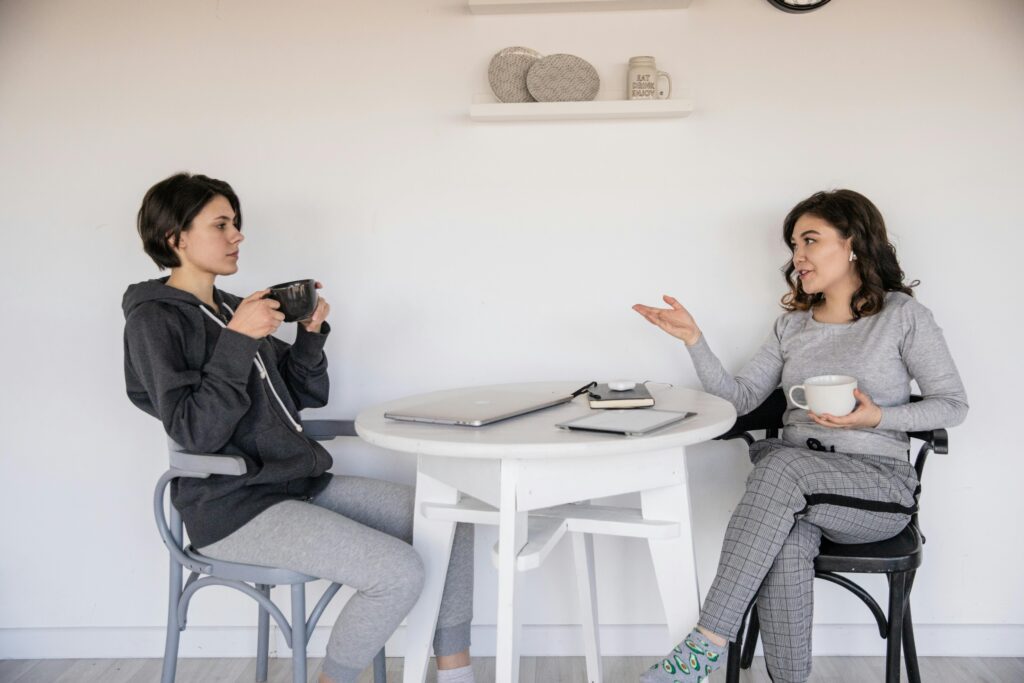In today’s rapidly growing digital world, mental health awareness is more critical than ever. Constant exposure to screens, social media, and digital information. Can easily lead to stress and frustration. However, by adopting certain practices. We can navigate this digital era in a way that supports our mental well-being
Understanding the Impact of Digital Technology on Mental Health
Digital technology has revolutionized the way we communicate, work and live. While it offers advantages like instant networking and access to information, it also bring challenges. Research shows that excessive screen time and social media use increase feelings of anxiety, depression, and loneliness. Understanding these impacts help us make informed choices about our digital habits.
Promoting mental health awareness in young people


Social media pressures and the constant flow of information take a significant toll on young people’s mental health. These factors contribute to a rise in issue like depression and anxiety. Educating young people on the importance of mental health. Encouraging open conversations, and promoting positive online behavior are crucial steps in fostering resilience in this digital age.
Improving mental Health well-being
One of the most effective ways to boost mental well-being is by taking regular digital detoxes. Scheduling time to disconnect from social media and engage in offline activities allows our mind. To rest and reset. These break helps reduce stress, increase, focus and enhance our overall mood.
Cultivate Healthy Digital Habits
To maintain mental health, we need to develop healthy digital habits. Limiting screen time, particularly before bedtime, promotes better sleep and reduces anxiety. Practicing digital hygiene by unfollowing accounts that spread negativity or foster unhealthy. Comparisons is another viral step. Instead, fill your social media feeds with positive and inspiring content.
Promoting Mental Well-being through Meaningful Connections in the Digital Age
While digital technology keeps us, connections matter more than the quantity. Prioritize in-person interaction and engage in meaningful conversations. To build strong, supportive relationships. Regularly meeting with friends and family strengthens your social support network, which is crucial for mental well being.
Maintaining Balance: Setting Technology Limits for Mental Health Awareness
In a world dominated by digital distractions, setting boundaries with technology is essential. Create a tech-free zone in your home, such as the bedroom or dining area, to encourage relaxation and offline engagement. By setting these limits, you prevent burnout and maintain a healthy balance between your online and offline life.
Practicing Mindfulness and Stress Management Techniques
Incorporating mindfulness and stress management techniques into your daily routine is the key to mental health in the digital age. Practices like yoga, deep breathing, and mediation helps to reduce stress and improves concentration. These techniques empower you to manage the pressure of the digital world effectively.
Seeking Professional Support When Needed
If you’re struggling with mental health challenges in the digital age, don’t hesitate to seek help from a professional. Mental health experts provide guidance, therapy, and resources to help you navigate these challenges.
‘’Remember that asking for support is a sign of strength rather than weakness’’.
The impact of virtual work environments:
Discuss how the shifts to virtual workplaces during and after the pandemic has blurred the line between work and personal life. leading to increased stress and burnout. Offer tips on how to create a healthy work life balance in a remote or hybrid work environment.
The tale of sophie: navigating mental health in the digital age
Sophie, a passionate graphic designer, found herself increasingly overwhelmed by the constant notifications and endless scrolling in her digital life. Despite her success, she felt drained and anxious, realizing that the vibrant world she loved was now dimmed by the pressures of staying connected.
One day, Sophie decided to disconnect for a weekend. She turned off her phone, stepped outside, and spent time doing the things she once enjoyed painting and walking in the park. That brief break from the digital world brought her peace and clarity. Sophie understood then that in a world full of screens, sometimes the most important thing you can do is unplug. This simple act of stepping away renewed her creativity and brought balance back into her life.
Inspired by this newfound balance, Sophie made it a regular practice to unplug and reconnect with the world around her. She realized that true connection doesn’t come from the number of likes or followers, but from the genuine moments shared with herself and others. By setting boundaries with technology, Sophie not only regained her mental well-being but also rediscovered the joy and passion that had once fueled her creativity.
Message: In our digitally connected world, taking time to disconnect can be the key to restoring balance and mental well-being.
Objectives of the story:
1.Illustrate the Effects of Digital Overload: The story demonstrates how excessive digital engagement, such as constant notifications and endless scrolling, can lead to feelings of anxiety, burnout, and a loss of passion, even in activities one loves.
2. Promote the Concept of Digital Detox: It highlights the positive impact of stepping away from the digital world, showing that even a short break can restore peace, clarity, and creativity, ultimately improving mental health
3. Encourage the Practice of Setting Boundaries: The story encourages readers to set regular boundaries with technology, suggesting that doing so can lead to a more balanced life, with deeper connections and renewed passion for personal interests.
4. Emphasize the Value of Genuine Connection: It reinforces the idea that true connection and fulfillment come from real-life interactions and meaningful moments, rather than the superficial metrics of likes and followers.
5. Inspire Readers to Take Action: The story motivates readers to reflect on their own digital habits and consider incorporating regular digital detoxes into their routine, aiming to improve their mental well-being and rediscover joy in everyday life.
This story, grounded in real life challenges and practical solutions. Offers readers both hope and guidance on how to navigate mental health in the digital age.
Practical Tips for Supporting Mental Health
1. Attend mental health events: Go to workshops, seminars, and events to learn more and raise awareness about mental well-being.
2.Create a supportive environment: Foster a space where people feel safe and free to discuss mental health without fear of judgment.
3.Encourage open conversations: Talk about mental health experiences and challenges
with friends, family, and coworkers.
4.Set personal and professional boundaries: Help people establish limits to protect their time, energy, and emotional health.
Conclusion
In a world where screens dominate our lives, it’s easy to get lost in the noise of constant connectivity. Sophie’s story shows us that stepping away, even for a short time, can have a profound impact on our well-being. By setting boundaries with technology and prioritizing real-life connections, we can regain balance, rediscover our passions, and nurture our mental health. The key is simple: sometimes, the most powerful thing you can do is unplug.


